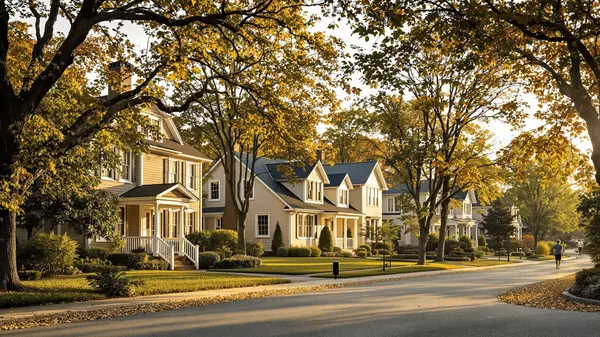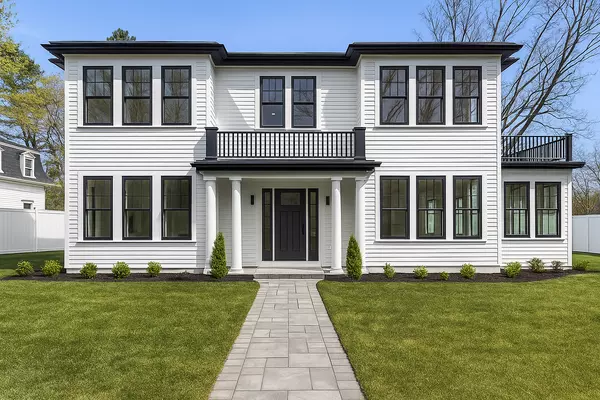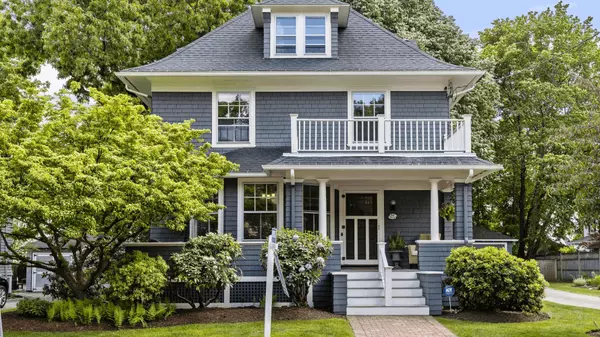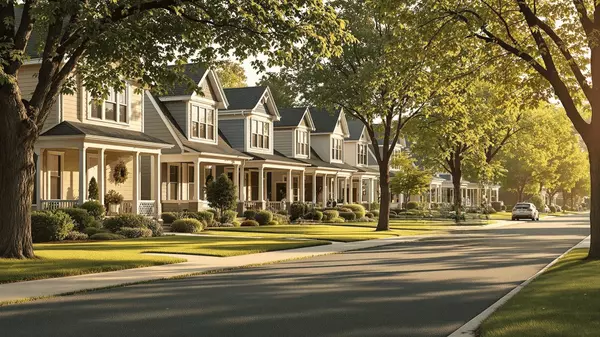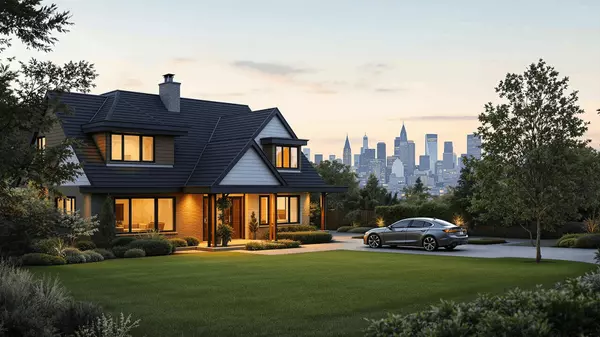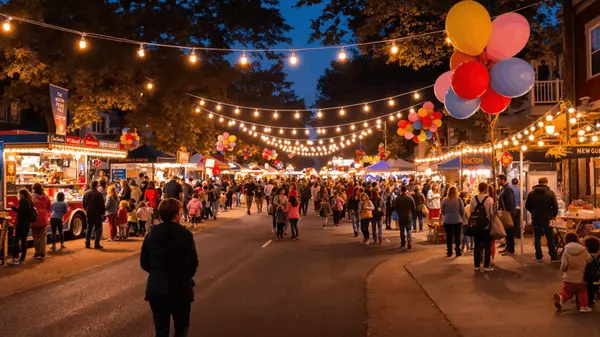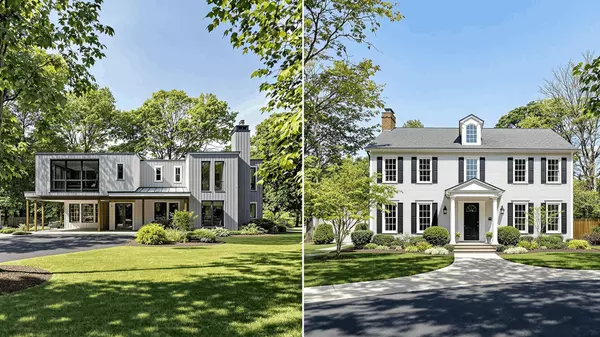New Construction or Historic Home in Newton, MA? Let’s Compare.
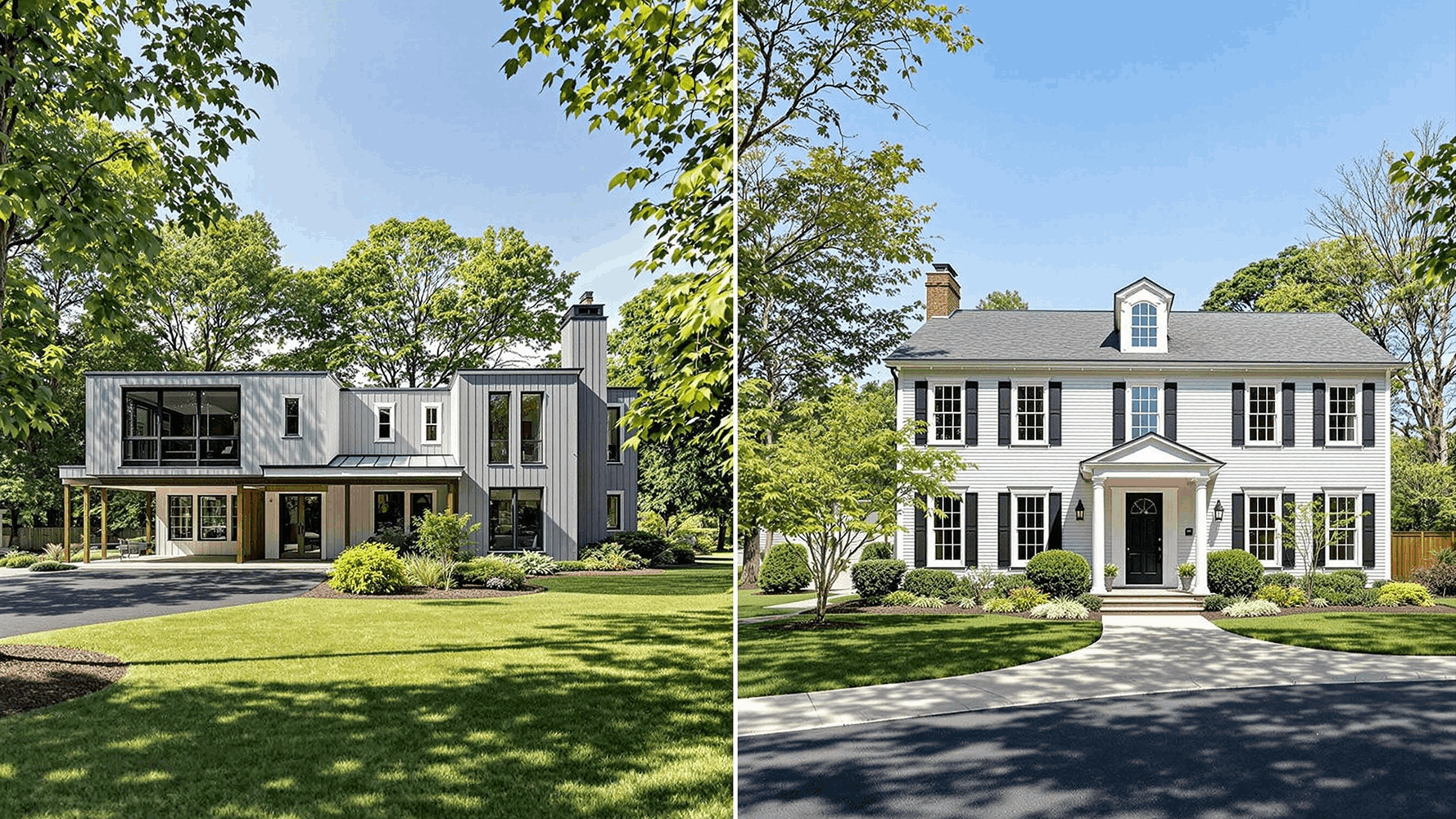
When considering the choice between new construction and historic homes in Newton, MA, potential buyers face critical decisions that impact their lifestyle and investment. New homes offer modern amenities and lower maintenance costs, while historic properties carry unique charm and character, often in desirable locations. Understanding the advantages and disadvantages of each option will help homeowners align their choices with their values and financial goals.
New construction generally meets contemporary needs and can be customized to fit personal preferences. In contrast, historic homes provide a glimpse into the past and often benefit from financial incentives for restoration. Buyers must weigh these factors against their budget and long-term plans in the vibrant communities of Newton.
As the market evolves, the cost dynamics also play a significant role in shaping preferences. With the median prices reflecting the distinct characteristics of both types of homes, prospective buyers should navigate this decision with a clear understanding of what contributes to their dream home.
Overview of New Construction in Newton MA
New construction in Newton, MA, reflects a blend of modernity and community needs. The city has seen various residential developments catering to diverse lifestyles.
Several benefits appeal to prospective homeowners:
- Customization: Buyers can often choose layouts, finishes, and features, tailoring homes to personal preferences.
- Efficiency: New homes typically adhere to contemporary building codes, promoting energy efficiency, and reducing utility costs.
- Amenities: Many new developments include modern amenities, such as open floor plans, smart home technology, and community facilities.
However, there are considerations to keep in mind:
- Cost: New construction can be pricier than older homes. Buyers should budget for potential premiums associated with newly built properties.
- Zoning Regulations: Development in Newton is subject to local zoning laws, which can affect the scale and type of new projects.
The housing market is dynamic. The Reibman Principle suggests that encouraging the private sector through zoning reform could lead to more affordable options in the future.
As the city evolves, new construction plays a crucial role in meeting housing demands while preserving the character of existing neighborhoods.
Overview of Historic Homes in Newton MA
Historic homes in Newton, Massachusetts, represent the city's rich architectural and cultural heritage. These properties often date back to the 18th and 19th centuries, showcasing a variety of styles.
These homes maintain distinctive features, such as:
- Gabled roofs
- Intricate moldings
- Classic porch designs
The city has several designated historic districts aimed at preserving these architectural treasures. The preservation efforts help maintain the character of neighborhoods while protecting unique landmarks.
Owning a historic home can offer several benefits. They often provide:
- Aesthetic appeal: Historic homes possess unique charm that modern constructions may lack.
- Cultural significance: These properties can reflect the history of the area and enhance community identity.
However, maintaining a historic home might involve certain challenges. Homeowners may face:
- Regulatory constraints: Renovations often require approvals to preserve historical integrity.
- Higher maintenance costs: Aging infrastructure can lead to more significant repairs.
In Newton, the local government actively supports historic preservation initiatives, ensuring these homes remain integral to the community's landscape. The beauty and history of these properties continue to draw interest from potential buyers and history enthusiasts alike.
Pros of New Construction
New construction homes offer a range of advantages to prospective buyers. They provide modern amenities, enhanced energy efficiency, and typically require less maintenance than older properties. These factors contribute to the overall appeal of new builds in any real estate market.
Modern Amenities and Customization
New construction homes often feature the latest in design trends and technology. Buyers can expect modern kitchens with updated appliances, smart home integration, and open floor plans that cater to contemporary lifestyles.
Customization options allow homeowners to tailor finishes, layouts, and materials to their personal tastes. Buyers can often choose from a variety of flooring, countertops, and cabinetry, ensuring that their new home reflects their unique style.
Additionally, many builders provide packages that include landscaping and exterior elements, enhancing curb appeal and personal expression.
Energy Efficiency and Sustainability
Newly built homes are generally constructed with energy-efficient materials and technologies. This includes high-performance insulation, energy-efficient windows, and advanced heating and cooling systems.
These features not only reduce energy consumption but also lower utility bills, benefiting homeowners financially in the long run. Many new constructions aim for sustainability, incorporating eco-friendly materials and practices during the building process.
Additionally, some developments may include solar panels as an option, allowing homeowners to harness renewable energy and further reduce their carbon footprint.
Reduced Maintenance and Repair Costs
One of the most significant advantages of new construction is the reduced need for maintenance and repairs. Everything in a new home, from the roof to the appliances, is typically brand new and under warranty.
This warranty coverage commonly lasts several years, offering peace of mind to homeowners. They can expect fewer emergencies related to plumbing or electrical issues, as modern building codes require adherence to stringent safety regulations.
Overall, the lower maintenance burden allows homeowners to focus on enjoying their living space, rather than worrying about repairs associated with older homes.
Cons of New Construction
While new construction homes may offer benefits such as modern amenities and efficiency, there are notable disadvantages to consider. Higher initial costs, lack of character and history, and the potential for neighborhood mismatch can significantly impact the decision-making process.
Higher Initial Costs
New construction homes typically come with a higher price tag compared to older properties. On average, the cost of newly built homes can exceed those of existing ones by 30% or more. This is often due to labor costs, building materials, and land acquisition expenses.
Buyers should also factor in additional costs such as upgrading landscaping, fencing, and driveways. Furthermore, many new homes are marketed with various customization options, which can inflate the final price.
Lack of Character and History
New homes often lack the distinctive charm found in historic properties. Features like intricate moldings, unique layouts, and original materials, commonly found in older homes, are typically absent in new builds.
For many buyers, the appeal of a home lies in its story and character. New constructions typically favor uniform designs that prioritize function over aesthetic individuality. This can leave buyers feeling like they are in a cookie-cutter environment rather than a unique living space.
Potential for Neighborhood Mismatch
When purchasing a new construction home, its location can lead to a mismatch with existing community characteristics. Many new developments arise in areas where older neighborhoods exist, creating a stark contrast between architectural styles.
This disconnect might not provide the sense of community that some buyers desire. For instance, a modern home could stand out among period homes and alter the neighborhood's aesthetic appeal. Residents may also experience a clash of cultures or lifestyles, potentially impacting their overall satisfaction with the area.
Pros of Historic Homes
Historic homes offer distinctive benefits that attract many buyers. Their unique charm, potential financial incentives, and the character of established communities make them a compelling choice for some buyers considering real estate options in Newton, MA.
Rich History and Unique Character
Historic homes are often imbued with architectural styles that reflect specific periods in history. This unique character can make these homes stand out, providing aesthetics that new constructions often lack.
Buyers may appreciate features such as:
- Original Woodwork: Handcrafted details and molding often exist in historic homes.
- Craftsmanship: Many older homes showcase artisan craftsmanship that is rarely seen in modern builds.
- Distinctive Layouts: Rooms in historic homes may be more spacious or have unique configurations that enhance livability and flow.
Living in a historic home connects residents with the past, fostering a sense of identity and community.
Potential Tax Incentives
Many historic homes qualify for tax incentives that can ease the financial burden of ownership. These incentives often cover restoration and renovation costs.
Programs may include:
- Historic Preservation Tax Credit: Homeowners may receive credits for making eligible improvements.
- Local Tax Reductions: Many municipalities offer reduced property taxes for maintaining historic properties.
These programs can significantly offset renovation expenses and enhance the home’s overall value.
Established Neighborhoods
Historic homes typically reside in established neighborhoods with mature landscaping and well-developed community dynamics. Such neighborhoods often feature:
- Accessibility: Proximity to local amenities, schools, and public transportation.
- Community Engagement: Long-standing residents often foster a strong community spirit, aiding social connections.
- Stable Property Values: Established neighborhoods tend to have stable property values, adding security to investment.
Investing in a historic home often means becoming part of a rich tapestry of local history, further enhancing the value of the property and lifestyle.
Cons of Historic Homes
Owning a historic home can come with unique challenges that potential buyers should consider carefully. Issues related to maintenance, potential restrictions on renovations, and energy efficiency concerns can significantly impact the experience of living in such properties.
Maintenance and Upkeep Challenges
Historic homes often require more intensive maintenance than newer constructions. The materials and craftsmanship used in these homes can be unique, requiring specialized skills for repairs.
For example, older roofing materials, plaster walls, and vintage plumbing systems may demand specific expertise. Regular upkeep can include:
- Inspections for structural integrity
- Chimney cleaning and maintenance
- Window restoration to maintain historic charm
The combination of age and specialized needs can lead to higher overall maintenance costs, which should be factored into budgeting.
Potential Renovation Restrictions
Homeowners of historic properties may face strict regulations regarding renovations. Local laws often aim to preserve the character and integrity of historic neighborhoods. This can limit the ability to:
- Change exterior appearances
- Alter layout significantly
- Update features such as windows and doors
Permits and approvals from local historical societies or boards can add time and complexity to projects. Understanding these regulations before purchasing is crucial to avoid unexpected challenges.
Energy Efficiency Considerations
Many historic homes were not designed with energy efficiency in mind. Issues like outdated insulation, single-pane windows, and older heating systems can result in higher utility bills.
Homeowners may need to invest in upgrades, such as:
- Energy-efficient windows
- Insulation improvements
- Upgraded HVAC systems
These modifications can enhance comfort but may also require significant upfront investment. Balancing the charm of historic features with modern efficiency needs can pose an ongoing challenge for new owners.
Cost Analysis
Understanding the costs associated with new construction versus historic homes in Newton, MA, can guide buyers in making informed decisions. This section examines market trends, long-term investment potential, and ongoing maintenance expenses.
Comparative Market Trends
The median price of new homes in the Newton area generally reflects a higher starting point than historic homes. For instance, new constructions can have median prices reaching around $355,400, while historic homes are typically priced at about $240,500.
Factors influencing these prices include location, square footage, and amenities. New homes often feature modern designs and energy-efficient technologies, which can justify the initial investment. In contrast, historic homes may offer unique architectural details, but they often come with fluctuating market demand influenced by buyer preferences for modern living.
Long-Term Investment Potential
Investing in new construction may provide a stable long-term value due to energy efficiency and reduced maintenance needs. New homes generally meet contemporary building codes and can appreciate at a steady rate in desirable areas like Newton.
Historic homes, while potentially less expensive initially, can appreciate significantly if maintained well. Buyers must consider that historic homes might attract niche buyers, which could lead to slower resale times but higher value appreciation when properly renovated. The long-term viability of either investment largely depends on market conditions and personal investment strategies.
Renovation and Upkeep Expenses
Renovation costs for historic homes can be considerable. Many buyers encounter unanticipated expenses when upgrading plumbing, electrical systems, or roofing. Maintaining the character of a historic home can also incur premiums, particularly if specialized craftsmanship is needed.
In contrast, new homes typically have fewer immediate upkeep costs. They come with warranties and conform to current standards, reducing unexpected repairs. However, buyers should still account for landscaping and any personalization of the new space. Both options require funding for ongoing maintenance, but the upfront and short-term expenses can vary significantly between the two types of properties.
Decision-Making Considerations
When considering whether to invest in new construction or a historic home in Newton, MA, it's crucial to evaluate personal lifestyle needs, future financial implications, and community regulations. Each of these aspects plays a significant role in the decision-making process.
Lifestyle Alignment and Preferences
Choosing between a historic home and new construction often hinges on lifestyle alignment. Historic homes typically offer unique architectural features and a sense of character that many find appealing.
Potential buyers appreciate the charm of older properties but must also consider the maintenance these homes require. Renovations can be costly, especially if they involve structural issues.
New homes, on the other hand, often feature modern layouts and energy-efficient technologies. Buyers may prefer the convenience of newer construction, which generally requires less immediate upkeep.
It is vital for buyers to assess what aspects of their lifestyle are most important, such as space requirements, design preferences, and willingness to undertake renovation projects.
Future Resale Opportunities
Understanding future resale opportunities is critical in making a decision. Market trends can influence the resale value of both types of homes.
New homes often attract buyers seeking modern amenities, which can lead to a quicker sale. Their appeal may enhance resale potential, reflecting advances in home design and energy efficiency.
Conversely, historic homes have their own unique value proposition. Properties that are well-maintained and located in desirable neighborhoods can appreciate significantly over time.
Buyers should research market trends in Newton to grasp how property types have performed historically. Engaging with local realtors can provide insights into neighborhood dynamics and how they may affect future resale.
Community and Zoning Implications
Community and zoning regulations greatly influence homeownership experience. Historic homes often fall under stricter preservation guidelines, which can limit modifications but also preserve neighborhood charm.
These regulations may ensure stability and enhance property values, which can be appealing for some buyers. However, owners must be prepared to navigate the complexities involved with renovation permits and historical reviews.
New construction tends to offer more freedom in design and modifications, as zoning regulations are generally more lenient. Still, buyers should investigate local zoning laws to understand potential restrictions.
Long-term implications on property use and community development plans should also factor into the decision. Understanding the community's vision can help align individual goals with residential choices.
Conclusion
Choosing between new construction and historic homes in Newton, MA, involves careful consideration of various factors.
New Construction:
- Often features modern amenities.
- Generally more energy-efficient.
- May require less maintenance in the initial years.
Historic Homes:
- Offer unique architectural styles and character.
- May appreciate in value due to historical significance.
- Often require more upkeep and renovations.
Cost analysis is essential. New homes typically have higher upfront costs, while older homes can involve hidden expenses from repairs and upgrades.
Location and community preferences also play a significant role in the decision.
Ultimately, buyers should assess their priorities, whether they lean toward modern convenience or historical charm, to find the right fit for their lifestyle and budget.
Frequently Asked Questions
This section addresses significant questions about new construction and historic homes in Newton, MA. It covers the advantages and disadvantages of each option, maintenance costs, appreciation potential, common challenges with historic homes, and the buying process.
What are the advantages and disadvantages of buying a new construction home versus a historic home in Newton, MA?
New construction homes typically offer modern amenities, energy efficiency, and customizable designs. They often require less immediate maintenance compared to historic properties.
In contrast, historic homes provide unique architectural charm and historical value. They may come with maintenance challenges due to aging infrastructure and materials.
How do the costs of maintaining a new construction home compare with those of a historic home in Newton, MA?
New construction homes generally have lower maintenance costs initially, as systems and materials are brand new. Homeowners may face fewer repairs in the early years.
Historic homes often entail higher maintenance costs due to older plumbing, electrical systems, and exterior materials that require regular upkeep and potential renovations.
What factors should be considered when evaluating the potential appreciation of new homes vs. historic homes in Newton, MA?
Location, demand for historical preservation, and market trends significantly influence property appreciation. New construction may appreciate based on neighborhood development and modern amenities.
Historic homes can appreciate due to their unique character and desirability among buyers looking for charm and historical significance.
What are the common maintenance challenges associated with historic homes in Newton, MA?
Historic homes may face challenges like outdated electrical systems, plumbing issues, and the need for specialized repairs.
Additionally, maintaining the home's original character often requires sourcing period-appropriate materials, which can be difficult and costly.
How does the buying process of new construction homes differ from that of historic homes in Newton, MA?
The buying process for new construction often involves working with builders or developers, allowing for customization options.
In contrast, purchasing a historic home typically includes thorough inspections for structural integrity and compliance with preservation guidelines.
What considerations are important when deciding whether to buy or build a house in Newton, MA?
Buyers should evaluate their preferences for customization, timelines, and budget constraints. Building a new home allows for tailored designs, but it involves time and potential delays.
Purchasing an existing home, whether new or historic, may provide quicker occupancy but may limit personalization.
Categories
Recent Posts
